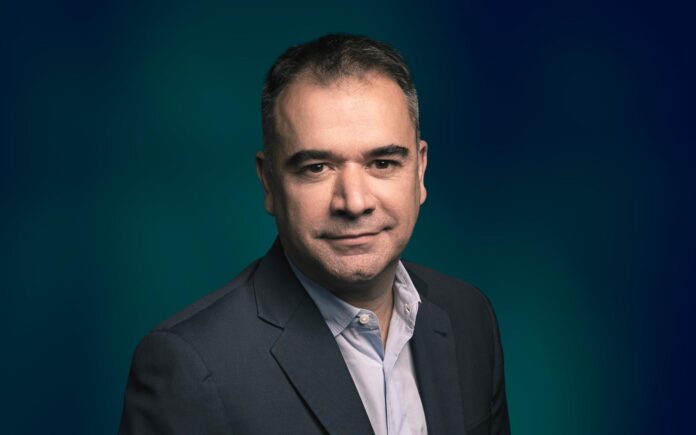Luis Berruga, CEO of Global X ETF, discusses the company’s beginnings, Global X ETF’s expansion in Europe and ETF challenges in the region.
When did Global X ETFs launch?
Global X ETFs was founded in 2008 and launched its very first ETF in 2009 – the Global X MSCI Colombia ETF (GXG). I always like to tell the story about why we came out with the Global X MSCI Colombia ETF first because it speaks to the firm’s background and mission. One of our founders owned a private banking business and had many clients in Latin America, specifically Colombia. He realized that this fund would be an effective solution for those clients to access Colombian equities through an exchange in the US, as there was no such ETF. So, from the start, Global X was founded to provide unexplored and intelligent solutions.
When did Global X ETFs launch in Europe?
We launched our first two ETFs, the Global X Video Games and Esports UCITS ETF (HERU) and the Global X Telemedicine & Digital Health UCITS ETF (EDOC), in December 2020.
What was Global X ETFs first fund?
The first ETF in the US was the Global X MSCI Colombia ETF (GXG). In Europe, it was the two just mentioned – HERU and EDOC. While Global X remains very focused on the US and European markets, over the last four years since I took over as CEO of the business, we have been very aggressive in building our global infrastructure to become a leading ETF issuer worldwide. Now we have a presence in Colombia, Brazil, Hong Kong and Japan. We also recently acquired ETF Securities, one of the top ten ETF issuers in the Australian market.
How many people does Global X ETFs have in Europe currently versus in America?
We have 30 people in London and roughly 150 people now in the US.
What roles such as sales, technology and marketing do you see opening up across Europe in the next twelve months for Global X ETFs
Global X’s resources in Europe include the senior leadership team running the overall management of the business, as well as capital markets, research, and brand development. That was the team’s core for the first few months of the European business as we were building up the infrastructure. Over the last few quarters, Global X has been hiring for sales and marketing roles.
Currently, we have 30 full-time staff based in London, mostly in senior leadership as well as capital markets, research products and sales – and we plan to expand beyond London.
Does Global X ETFs have any new product launches coming up?
Recently we launched the new Global X Disruptive Materials ETF (DMAT). This fund is a play on the commodities that will have vital roles in shaping the disruptive technologies of the coming decades, and the feedback on DMAT from our London team has been phenomenal. Over the coming months, we’ll expand our cover call strategies in Europe and focus on digital assets. Those areas of the business resonate very well with our client base.
What are the main themes that US investors are buying into?
Cybersecurity is top of mind. I think the market understands that in a world of increased internet connectivity – whether it is your computer, your phone, your watch or even your dishwasher– there is also increased potential for vulnerabilities within the network. Further, through the geopolitical situation between Russia and Ukraine, we have seen a shift within traditional warfare from a physical world to a virtual world.
 Another main theme is electric vehicles. There is interest in electric vehicles for many reasons, including the shift towards sustainability promoted by both the private and the public sectors. Countries are also looking to shift away from their dependency on oil and natural gas as a result of the war between Russia and Ukraine.
Another main theme is electric vehicles. There is interest in electric vehicles for many reasons, including the shift towards sustainability promoted by both the private and the public sectors. Countries are also looking to shift away from their dependency on oil and natural gas as a result of the war between Russia and Ukraine.
For both private and public investors, the possibility of diversifying away from fossil fuels is increasingly essential. Certainly, themes like clean energy and electric vehicles will benefit. In fact, electric car sales doubled in 2021, but they are still only 9% of total car sales. As such, the potential is very, very significant.
Finally, robotics and artificial intelligence are themes many people have talked about for a long time, but we’re still in the earliest stages of adoption. For example, we have a joint venture in Japan – Global X ETFs Japan. It’s a partnership between the US and Daiwa Securities, one of Japan’s largest financial institutions. Through that partnership, I have seen first-hand the incredible adoption of robotics and artificial intelligence in day-to-day activities. During a recent visit, I asked how there might have been such significant geographic discrepancies in adopting robotics. The reality is that Japan does not have enough people who want to do certain activities due to an ageing population. As such, they are using robotics as an excellent way to get there. That is also the case in countries historically dependent on low labour costs, such as China, which is why there may be a dramatic change. The minimum wage in China now is 20 times more expensive than it was ten years ago. To remain competitive, these countries must keep labour cost low, which is a very effective reason to rely on robots and artificial intelligence.
Is Global X ETFs opening any offices in mainland Europe?
Our entire legal structure, infrastructure, back office and legal and compliance are based in Dublin, and we have not yet opened offices elsewhere – aside from London. However, from a business development standpoint, we are actively working on opening offices in Spain, Italy, Switzerland and potentially northern Europe.
ETF take-up by institutional investors in the UK is said to be very low. How do you see that changing, if at all?
It will change because the UK is similar to the US market in adopting new investment vehicles, including the distribution model. In the UK, it may take a little longer because of specific challenges like technology infrastructure that prevent some institutional investors from having direct access to ETFs. However, this is changing, and we are seeing technology platforms and companies helping to make investments in ETFs very easy. For example, institutional investors were roughly 3% of our assets when I joined the company. That number today is 10%, which continues to increase significantly.
At a recent Funds Europe ETF Roundtable, it was said in the financial advisor space in the UK, financial advisors don’t have the technology to support ETF businesses. What are your thoughts?
This relates to what I mentioned before about institutional investors in the UK, and it is very similar to what we faced in the US a few years ago. For example, 401(k) plans are one of the main retirement vehicles for most investors in the US. However, these plans were designed exclusively with mutual funds in mind, which only trade at the end of the day. It took time for adoption to kick in because many companies had to develop a whole new technology to accommodate ETFs.
While it may take time and resources, I’m convinced that the UK’s technology infrastructure will soon better accommodate ETFs. Some of our most important clients in the UK are subject to retail clients that open accounts online, and they can buy and sell ETFs just like they buy and sell shares of a single company. There is more and more client-driven demand for ETFs, and financial advisors and wealth managers who want to compete will have to offer these solutions.
The European Union recently decided to include gas and nuclear in its green taxonomy. So what will this mean for uranium ETFs in Europe?
Global X ETFs offers URA, the largest uranium ETF on the market, at approximately $1 billion in AUM. We have also launched that ETF in the European market, where it has enjoyed success and growing interest.
Nuclear energy checks many boxes across many countries. Although nuclear energy has to deal with certain negative perceptions, there is a major need for energy diversification – and nuclear energy is very clean, reliable and – once you have a nuclear plant up and running–cost-effective.
In the EU, nuclear energy and uranium have benefited from recent considerations such as a gas price gap. However, interest in nuclear power goes beyond Europe. If you look at the number of nuclear plants built worldwide, certain countries, including China and South Korea, are building nuclear plants at a pace not seen in the last 15 years. Across the world, governments realize that nuclear energy checks many of the boxes needed for energy diversification going forward.
© 2022 funds europe





